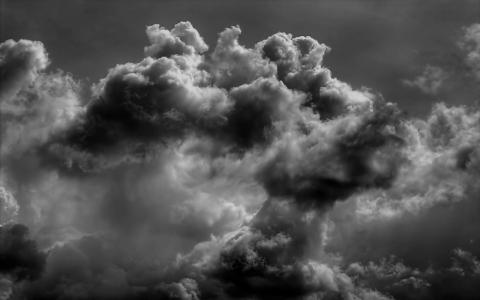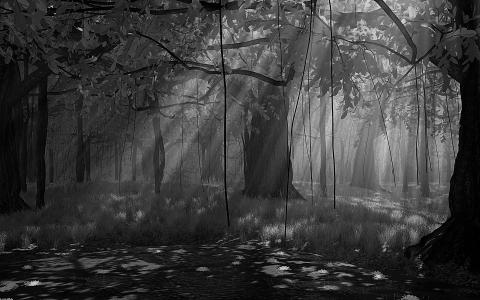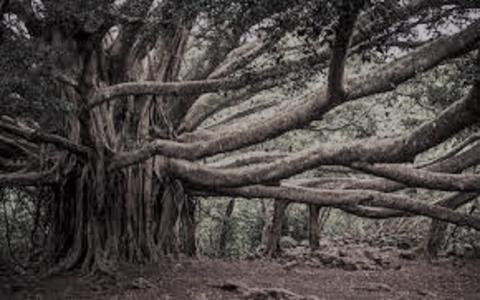
It is not possible for ordinary people to know the path of dharma by their own judgment, without the guidance of Śruti and Smṛti. Their knowledge is limited; the capability of their buddhi is sparse; their nature is fallible, owing to kāma, krodha and lobha; therefore instruction and guidance from ancestors and traditions followed by older and experienced people becomes the basis for performing dharma. They show us the highway of dharma. Any...

In the Rāmāyaṇa, after Daśaratha left to the heavenly abode, when Bharata begged Rāma to return to Ayodhyā and become the king, Srirāma says the following -
yathā kāṣṭhaṃ ca kāṣṭhaṃ ca sameyātāṃ mahārṇave ।
sametya ca vyapeyātāṃ kālamāsādya kañcana ॥
evaṃ bhāryāśca putrāśca jñātayaśca dhanāni ca ॥
(2.105.26, 27)
Srīrāma’s opinion is — “Just as two logs coming from different places travel together for some time and then disperse in a vast...

All the above are sāttvika qualities. “Abhijāta” means one who is born after performing puṇya. Such a person is blessed with daivī qualities. Whoever thinks he is born in a good family and acts accordingly — one who has earned the qualification to worship the Divine — he will be blessed with the wealth of these above qualities. It releases the jīva from bondage. All this is divine wealth.
The qualities opposite to the above are āsurī qualities...

Note
manujaṃ daivāsurala-
kṣaṇamiśritanavana jagakè kaṭṭuva saṃpad-
guṇamāsuram adariṃ mo-
canèyāgipa saṃyamādigaḻè daivya-dhanaṃ ॥
Man is an admixture
Of qualities daivī and āsurī
Fetter him to the universe, the latter
Divine qualities like restraint release him from them.
Gaganadi teluva paṃjara
Jagamidu nija-karma-phalavan-adaroḻag-uṇuvā
Khaga jīvaṃ gūḍoḍèdadu
nègèderal dorègum adakanaṃtada saukhyaṃ ॥
The universe is a cage...

Let us now conclude this topic. The jīva has come in contact with the saṃsāra-tree. The root of that tree is in the supreme position (“parame vyoman”). In its lower part are branches and twigs in the form of the world. The higher the jīva goes - towards the root - the farther he gets from the bitterness, all the bothersome pests and filthy odours of the tree. That is mokṣa. The upward journey towards the origin is fueled by the effort of...

We saw in the previous Bhāgavata śloka a mention of two birds in the primordial tree - dvikhago hyādivṛkṣaḥ. When there is a tree, there is usually a bird in it. The metaphor of the two birds comes to us again from the Veda. The Muṇḍakopaniṣad describes the two birds of the saṃsāra tree thus.
dvā suparṇā sayujā sakhāyā samānaṃ vṛkṣaṃ pariṣasvajāte ||
Muṇḍakopaniṣad 3.1.1
The mention of these two birds is seen elsewhere in the Vedas as well....

What is the reason behind the name aśvattha for a tree thus extolled in the Veda? Śvaḥ in Saṃskṛt means tomorrow. Śvastha is something that will exist tomorrow just as it exists today. Aśvattha then refers to something that will not be the same tomorrow as it is today. It is something that changes every instant - something constantly changing or fickle.
na śvo’pi sthātā iti aśvatthaḥ taṃ kṣaṇapradhvaṃsinam aśvattham
(As it will not exist...

Introduction
parākṛtanamadbandhaṃ paraṃbrahma narākṛti |
saundaryasārasarvasvaṃ vande nandātmajaṃ mahaḥ ||
I bow to that Supreme Brahma in human form that dispels the bondage of those who bow to it, to the essence of all beauty, to that effulgence that is the joy of Nanda.
- Śrī Madhusūdana Sarasvatī
Note
aśvatthadaṃtè jaṭilaṃ
viśvada saṃsāravṛkṣamaṃtu viśālam
naśvaramadu śākhègaḻoḻ
śāśvatamadu...

A relevant matter here needs discussion. Bhagavān says that the three guṇas have to be transcended or sublimated. Good. But even to transcend those guṇas, a guṇa or means is needed. Is that way a guṇa? What guṇa is that?
That guṇa is sattva, a preponderance of sattva to be precise. There is a state to be attained by elevating the proportion of sattva. What is the guṇa of that state? Even that is sattva. Sattva is obtained by enhancing sattva...

What is a guṇa? A certain innate characteristic or natural power of a thing that causes affinity or otherwise with another thing is its guṇa. Thus the guṇa is an intrinsic power of a thing that attracts or repels another. It requires a counterpart just as love requires a suitable recipient; beauty requires a connoisseur; valour a competitor; scholarship a disciple; magnanimity requires one who seeks; pomp and show require an audience; the taste...
